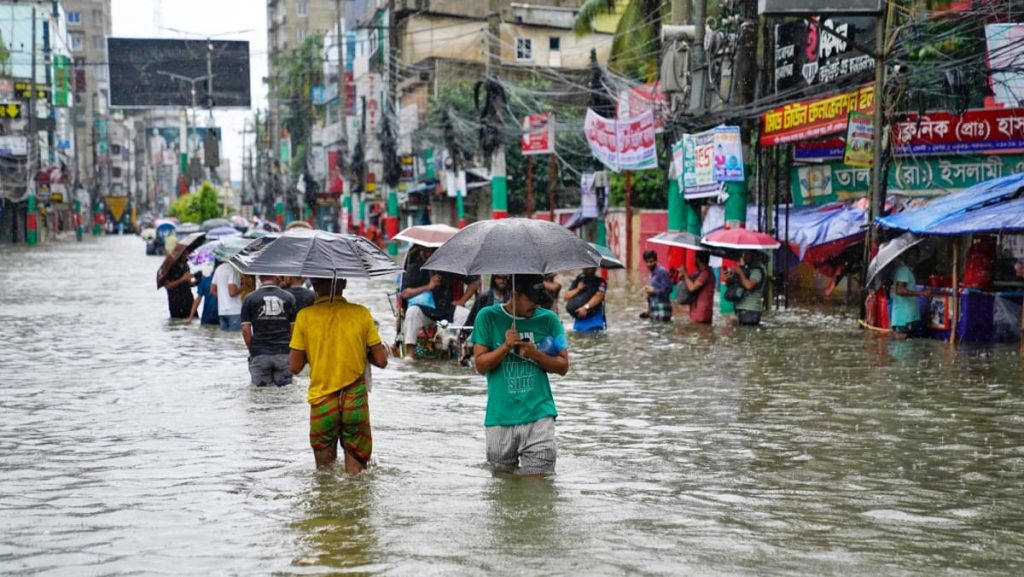In 2015, the World Bank Institute conducted an analysis that revealed 3.5 million people in Bangladesh, a country highly vulnerable to climate change, were at risk of annual river flooding. Scientists have linked the increasing frequency and severity of catastrophic events like flooding in Bangladesh to climate change. Recently, students in Dhaka protested against the floods, blaming the opening of dam sluice gates in neighboring India for the disaster.
India’s foreign ministry responded to the allegations by stating that the floods in Bangladesh were not caused by water released from the Dumbur dam on the Gumti River in Tripura. The ministry explained that the heavy rains in the catchment areas of the Gumti River, both in India and Bangladesh, were the primary cause of the flooding. They emphasized that the floods were a natural consequence of the large catchments downstream of the dam, not due to intentional actions by India.
In Tripura, India, 12 people lost their lives due to landslides and floods triggered by continuous rainfall over the past three days. Suman Deb, an Indian disaster management official, reported that the impact of the flooding had been devastating, prompting ongoing rescue operations in the affected areas. India’s interior minister, Amit Shah, announced the dispatch of disaster management teams, boats, and helicopters to assist in relief and rescue operations in Tripura.
India’s foreign ministry underscored the importance of mutual cooperation between India and Bangladesh in addressing the issue of floods on shared rivers. They stated that flooding on rivers common to both countries was a shared problem that inflicted suffering on people on both sides. The ministry stressed the need for close collaboration and joint efforts to address these challenges collectively. The statement highlighted the interconnected nature of environmental disasters and the importance of working together to mitigate their impact on both nations.
The response from India’s foreign ministry sought to clarify the reasons behind the flooding in Bangladesh, emphasizing the role of natural factors like heavy rainfall in causing the disaster. By addressing the concerns raised by protesters in Dhaka and acknowledging the devastation caused by the floods in Tripura, Indian officials demonstrated a commitment to providing assistance and support to those affected by the calamity. The statement also reflected the recognition of the importance of coordinated efforts in managing and responding to natural disasters that impact both countries.
Overall, the situation highlighted in the analysis and response underscored the complex and interconnected nature of climate-related disasters in the region. By acknowledging the shared challenges and emphasizing the need for cooperation and collaboration, India and Bangladesh can work together to address the impacts of flooding and other environmental hazards. The events described serve as a reminder of the importance of collective action in mitigating the effects of climate change and protecting vulnerable populations from the devastating consequences of natural disasters.


